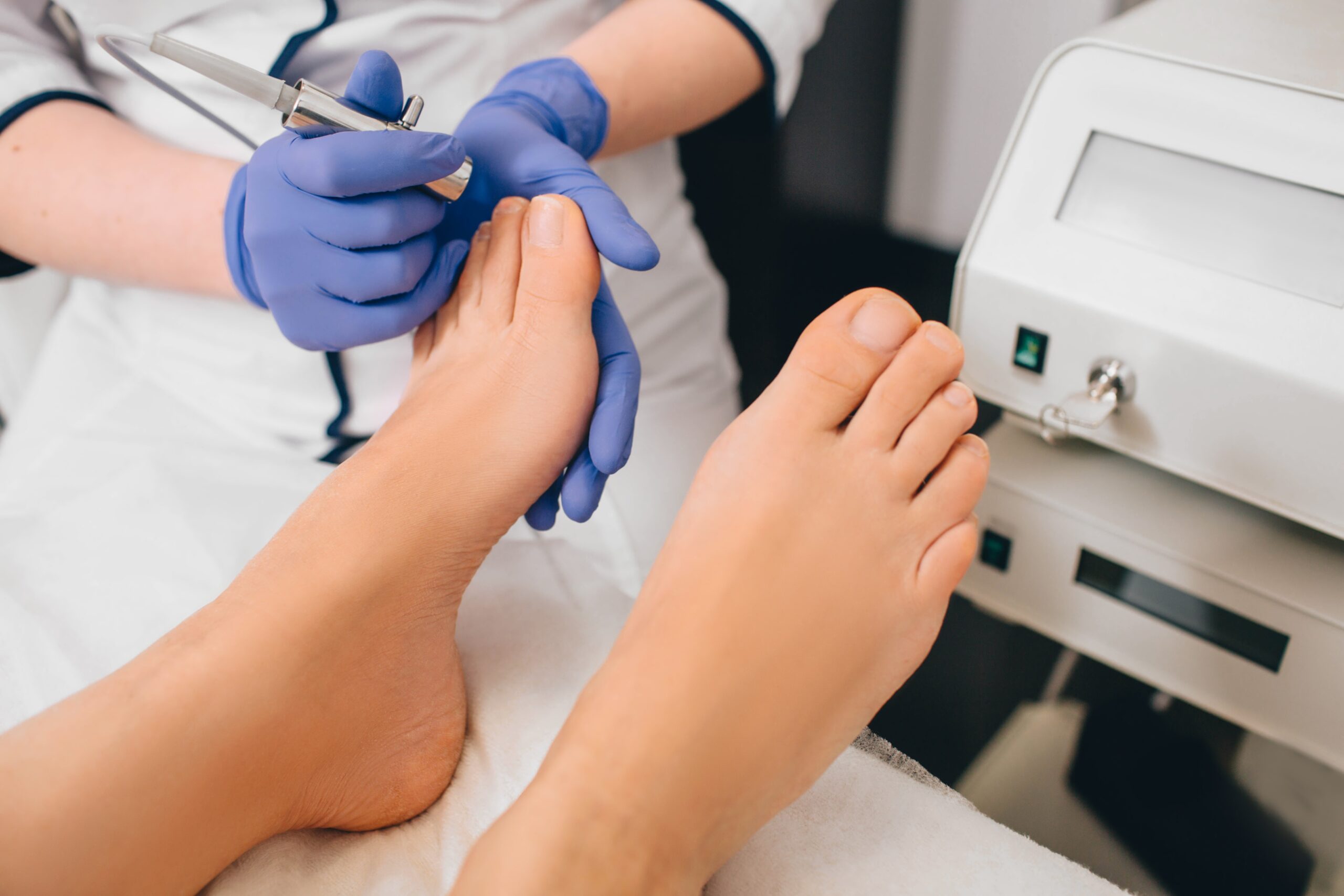 You may know that diabetes is a chronic disease affecting blood sugar (glucose) and insulin, but did you know that affects approximately 29.1 million people in the United States, which is more than 9% of the population? Every year 1.7 million new cases of diabetes are diagnosed, and as many as 8.1 million people are estimated to have diabetes but remain undiagnosed. There are three main types of diabetes – type I, type II, and gestational diabetes. When dealing with diabetes, there can be several considerations that need to be taken to ensure your overall health, including the health of your feet!
You may know that diabetes is a chronic disease affecting blood sugar (glucose) and insulin, but did you know that affects approximately 29.1 million people in the United States, which is more than 9% of the population? Every year 1.7 million new cases of diabetes are diagnosed, and as many as 8.1 million people are estimated to have diabetes but remain undiagnosed. There are three main types of diabetes – type I, type II, and gestational diabetes. When dealing with diabetes, there can be several considerations that need to be taken to ensure your overall health, including the health of your feet!
How does diabetes affect my feet?
Diabetes weakens your immune system, making it more difficult for your body to fight off infections, which can damage your nervous system. Damage to your nervous system can affect your feet’s ability to produce sweat and other natural oils that keep your skin lubricated. Without proper lubrication, the skin, bones, and joints of the foot can become injured.
Sometimes, those with diabetes do not notice sores or injuries to their feet until it is too late. It is important to maintain proper foot health and seek treatment immediately when an injury is present. Poorly fitting shoes are the number one cause of foot injury when it comes to diabetes. Red spots, sores, blisters, corns, calluses, or any persistent pain should be taken seriously, and proper fitting footwear (along with orthotics) should be worn.
You may also be at risk for a condition known as diabetic neuropathy if your diabetes has been poorly managed. This condition is characterized by nerve damage and affects as many as 50% of patients diagnosed with diabetes. Diabetic neuropathy often damages the nerves in the feet and legs, but can also cause issues with the digestive system, urinary tract, blood vessels, and heart. Taking preventative measures and following your doctor’s recommendations for the management of your diabetes can often prevent or slow the progression of diabetic neuropathy.
What preventative steps can I take?
If left untreated or unmanaged, foot problems can lead to problems such as losing a toe, foot, or leg. Keeping your diabetes well managed and preventing injury is the key to maintaining proper foot health.
In addition to managing your diabetes, there are some steps you can take to help further protect your feet from injury and infection. It is important to wash and check your feet daily and address any issues immediately to avoid further problems. Here are some preventative steps you can take:
- Keep your skin well moisturized, soft, and smooth.
- Gently smooth corns and calluses that may be on your feet.
- Trim your toenails straight across on a regular basis. If you are unable to reach your feet or do this safely, ask your podiatrist or a loved one to help you.
- Always wear shoes and socks, even when indoors. Unprotected feet can lead to increased risk of injury.
- Protect your feet from hot and cold temperatures. Wear socks that will keep your feet warm.
- Check your feet every day and report any abnormal changes to your doctor.
- Wear shoes that fit well and are designed for your specific condition and/or level of activity.
If you notice any abnormalities in your feet, it is important to bring them to the attention of your podiatrist immediately. While diabetic foot problems can lead to more serious conditions, they can be prevented. Practicing these preventative measures, maintaining good hygiene practices, and managing your blood sugar levels are all essential to keeping your feet healthy. For more information about diabetes and foot health or to schedule an appointment, contact Foot and Ankle Centers today.







